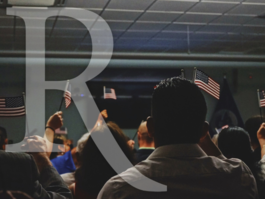Paper Is More Forever
A Commentary by Froma Harrop
How many of you want your holiday greetings to arrive in the form of thick paper cards delivered by the United States Postal Service? Now, how many prefer your cheery wishes to arrive in your e-mail inbox, always available via a click or two, assuming you remember where they’re stored? Let’s have a vote on that loaded question.
Some communications are still best made on paper. Mainstream etiquette requires that sympathy letters after a death be handwritten. Wedding invites still come on compressed-cellulose, usually of high quality. You can tape paper invitations to the refrigerator. No batteries required.
In this season of tradition, while shoppers stampede for electronics -- some bought online from an e-merchant -- paper still rules the soul. Some things are too personal to be delivered via a click on the “send” button.
That’s why e-readers have barely dented the market for children’s books. It seems that most parents don’t want to read a bedtime story off a screen. They want their children to hold a book in their hands and play with the pages. Thus, digital versions account for only 5 percent of children’s book sales, publishers told The New York Times. (E-book sales in some adult categories account for five times that share.)
Paper books make fine affordable presents. Never say never, but I can’t see sending an e-mail that reads, “For your birthday, I’m giving you Gibbon’s ‘The History of the Decline and Fall of the Roman Empire.’ Please click on the link.” How does one inscribe that? An e-book feels like a transfer of cash.
The drop-off in sales of paper books and the success of online bookseller Amazon have contributed to another bit of depersonalization. Many bricks-and-mortar bookstores have vanished from the landscape, depriving us of our precious “third places.” This is urbanologist talk for a hangout that is not home or work. Anyone who depended on a Borders (now bankrupt) for escape from work or Sunday-night tedium knows of what I speak.
Fortunately, we see some fight-back. Nashville novelist Ann Patchett so lamented the loss of a local independent bookstore and of a Borders that she bankrolled her own shop in the “Athens of the South” -- Parnassus Books.
In Manhattan’s plugged-in Nolita neighborhood, Canadian Sarah McNally has created a literature-heavy bookstore that’s become an institution. McNally Jackson Books doesn’t even offer Internet access. Now how cool is that?
It’s been predicted that the paper books of the future will be better made and more treasured than today’s typical pulp product. Ordinary books will be downloaded digitally. (I fully appreciate the instant gratification of downloading a quick read on my Kindle.)
One thing that makes e-books more competitive with paper books is that paper books have gotten so shabby. If you have an early edition of Julia Child’s “Mastering the Art of French Cooking,” compare its rich pages with the cheesy paper of the 2009 reprint.
This opens an interesting discussion on a new phenomenon, the “Espresso” machines that can automatically print and bind books. A few traditional bookstores, such as McNally's, have them, giving customers fast access to paper books not on the shelves. Sounds interesting, but will these feel like the real thing?
Paper is not forever, but it is a lot more forever than the digital images that vanish the moment the electricity goes off or the battery drains. The digital age has set off an explosion of information, much of which we print out. But some printed communications deserve a higher quality of bond, which is why, when it comes to holiday greetings, we look toward the mailbox, not the inbox.
COPYRIGHT 2011 THE PROVIDENCE JOURNAL CO.
DISTRIBUTED BY CREATORS.COM
See Other Political Commentary.
See Other Commentaries by Froma Harrop.
Views expressed in this column are those of the author, not those of Rasmussen Reports. Comments about this content should be directed to the author or syndicate.
Rasmussen Reports is a media company specializing in the collection, publication and distribution of public opinion information.
We conduct public opinion polls on a variety of topics to inform our audience on events in the news and other topics of interest. To ensure editorial control and independence, we pay for the polls ourselves and generate revenue through the sale of subscriptions, sponsorships, and advertising. Nightly polling on politics, business and lifestyle topics provides the content to update the Rasmussen Reports web site many times each day. If it's in the news, it's in our polls. Additionally, the data drives a daily update newsletter and various media outlets across the country.
Some information, including the Rasmussen Reports daily Presidential Tracking Poll and commentaries are available for free to the general public. Subscriptions are available for $4.95 a month or 34.95 a year that provide subscribers with exclusive access to more than 20 stories per week on upcoming elections, consumer confidence, and issues that affect us all. For those who are really into the numbers, Platinum Members can review demographic crosstabs and a full history of our data.
To learn more about our methodology, click here.



